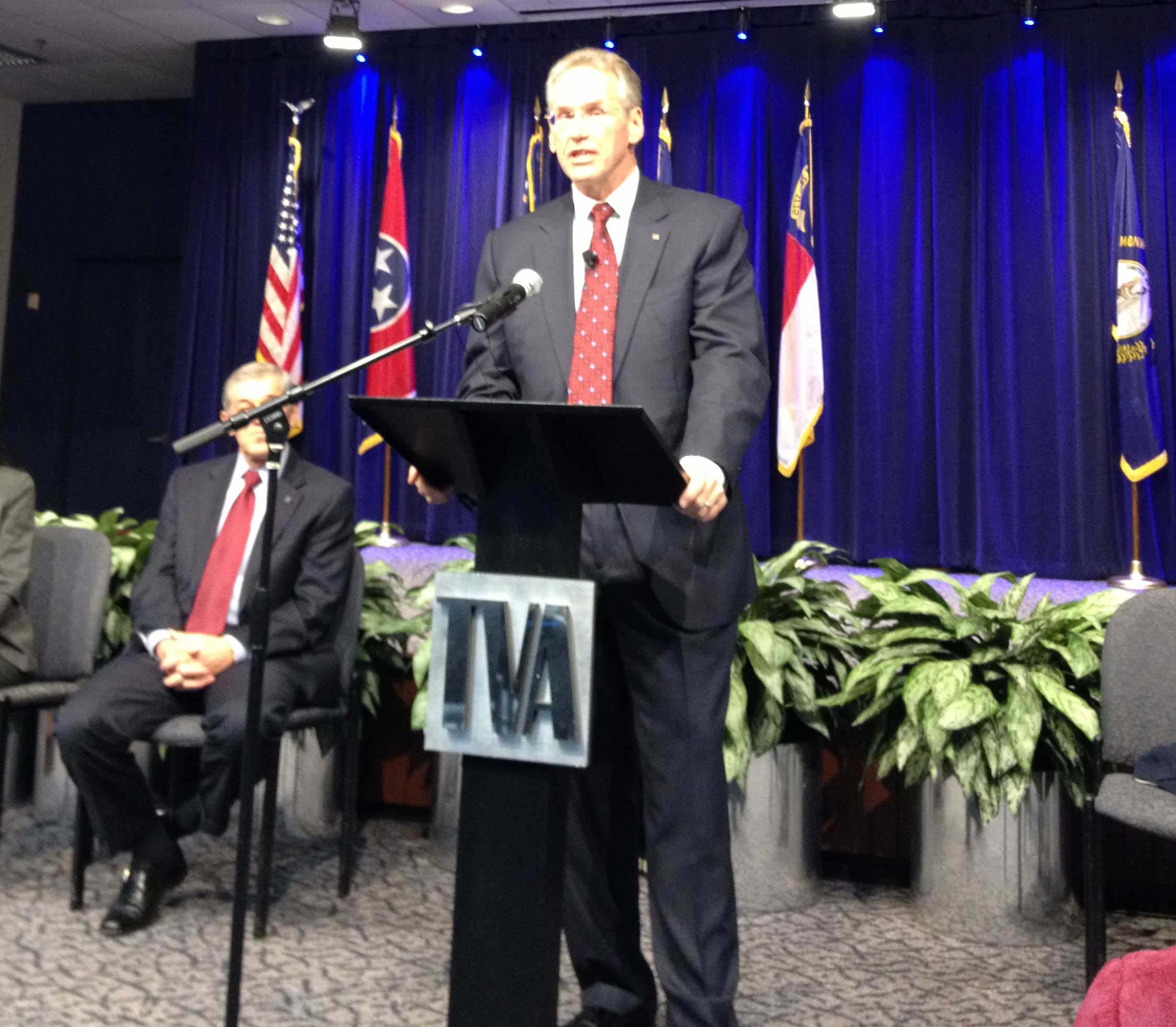Tennessee's senior senator sees the incoming CEO of the Tennessee Valley Authority as "one of the nation's most experienced and respected utility executives."
But an environmental group quickly questioned the hiring of former Progress Energy CEO Bill Johnson, claiming he has "a controversial past" and displayed "questionable management" of a Florida nuclear power plant.
U.S. Sen. Lamar Alexander, R-Tenn., praised the selection of Johnson to head TVA.
"I look forward to working with Bill Johnson and the board to help TVA provide the large amounts of low-cost, clean, and reliable electricity that are crucial to growing new jobs," Alexander said in a statement today.
But the Southern Alliance for Clean Energy, a Knoxville-based environmental group that is often critical of nuclear power, today questioned TVA's appointment of the 58-year-old Johnson to succeed retiring TVA CEO Tom Kilgore.
"While we will maintain an open mind, I'm surprised that TVA's Board would hire Mr. Johnson with his controversial past," said Stephen Smith, executive director for the Southern Alliance for Clean Energy.
TVA Chairman Bill Sansom praised Johnson today as "a seasoned CEO with deep experience leading a company with a diverse energy portfolio - from coal and gas, to nuclear, hydro and renewables.
But Smith said the sudden removal of Johnson by the Duke Energy Board in July just hours after his appointment was "highly unusual" and raises questions about Johnson's leadership.
"While we may never know the full story of why Johnson was so abruptly dismissed, there are some known facts which would make one question whether or not he is the best fit to lead TVA," Smith said.
Under Johnson's leadership, Progress Energy Florida chose to self-manage an upgrade project at its troubled Crystal River 3 nuclear reactor north of Tampa, rather than bring in outside experts. Smith said Progress chose a "do it yourself" approach to a complex steam generator upgrade that led to major cracks in the containment vessel. The reactor has been offline since 2009 and will cost at least $1.5 billion to repair and won't be back in service until 2016.
"Johnson oversaw the company's failed decision to "self-manage" the steam generator upgrade, rather than have experienced vendors execute the upgrade," Smith said in a statement released today. "He has been accused of failing to communicate the seriousness of the reactor's problems leading up to the merger, low balling the cost to repair and doggedly wanting to fix the reactor despite mounting evidence that shutting it down may be the better fiscal decision for ratepayers in Florida."

